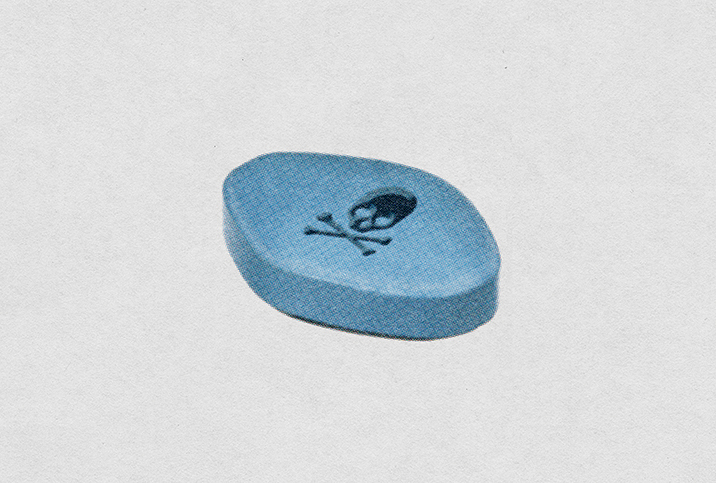What Are the Causes of Erectile Dysfunction?

Erectile dysfunction (ED) is the inability to achieve and sustain an erection that is sufficient for sexual intercourse. However, in many cases, ED is a sign of an underlying physical or mental health problem.
The risk of developing erectile dysfunction rises as men age, and some researchers believe ED is the most common form of sexual dysfunction affecting men. While estimates vary widely, a 2018 review in Sexual Medicine reported that one-third of men suffer from ED.
An overview
Most men experience ED at some point in their lives. The occasional failure to achieve an erection can happen due to many reasons, including fatigue, reduced sex drive and drinking too much alcohol. Treatment isn't typically needed in cases where the man has trouble getting an erection less than 20 percent of the time. However, if a man is unable to get an erection more than half of the time, it's usually indicative of an underlying physical or psychological problem that needs treatment.
Common symptoms of erectile dysfunction include:
- Being unable to get an erection at any time
- Being able to get an erection some of the time but not every time you want to have sex
- Being able to get an erection, but you can't maintain it for sex
- Softer erections
- Reduced interest in sex
Sexual disorders related to ED include:
- Delayed ejaculation
- Premature ejaculation
- Anorgasmia (the inability to have an orgasm after plenty of stimulation)
What physical complications can cause ED?
Changes in erectile function can be a sign of a number of physical conditions, including heart problems. Researchers believe that ED preceding cardiovascular problems is often due to problems in the inner lining of the blood vessels and smooth muscle, resulting in an inadequate blood supply to the heart and penis. Erectile dysfunction can also lead to the development of atherosclerosis, a hardening and narrowing of the arteries. Atherosclerosis is believed to be responsible for at least 50 percent of erectile dysfunction cases in men older than 60.
Diabetes can cause damage to the arteries and nerves, making it difficult to get an erection. It's estimated that around 50 percent of men with type 2 diabetes experience ED.
Some of the physical health conditions and diseases that can lead to ED include:
- Heart disease
- Type 2 diabetes
- Chronic kidney disease
- Prostate problems
- Hypertension (high blood pressure)
- Multiple sclerosis
- Parkinson's disease
- Atherosclerosis
- Spinal cord injuries
- Nerve damage from pelvic operations
- Peyronie's disease
- Obesity
- Low testosterone
Additionally, some medications taken to treat certain health conditions can contribute to ED. Blood pressure drugs, such as thiazide diuretics, antidepressants—like Prozac and Zoloft—and pain meds can all potentially cause erectile dysfunction as a side effect.
What mental health conditions can cause ED?
Mental health issues that contribute to erectile dysfunction can be more difficult to detect and diagnose than physical health conditions. Psychological factors are often a secondary reaction to underlying physical conditions. Some studies have indicated that nearly 25 percent of men with ED also suffer from anxiety, depression or both.
Common mental health conditions that cause erectile dysfunction include:
Anxiety. One of the most common psychological causes of ED, anxiety is the body's response to stress, which, in turn, causes increased fear and alertness. Anxiety can lead to rapid heart rate, elevated blood pressure and fatigue. These factors can affect sexual function: "Performance anxiety," or the fear of sexual failure, is common in men and can also lead to erectile dysfunction.
Depression. This condition is a mental illness marked by sadness, feelings of hopelessness and pessimism. The sexual urge that starts an erection begins in the brain. When there is a lack of brain chemicals to stimulate the blood flow needed for getting and maintaining an erection, it can result in erectile dysfunction. Depression causes a chemical imbalance in the brain, which can lead to a reduced sex drive and difficulty in getting an erection.
Symptoms of depression include:
- Low self-esteem
- Feelings of guilt
- Irritability
- Fatigue
- Decreased appetite
- Loss of interest in activities you used to enjoy
- Sleep disturbances
- Apathy
Stress. If you're stressed out from work, your home life or any other area of your life, it can affect your ability to get an erection. It's important to differentiate between good stress and bad stress. When your brain is under good stress (eustress), your body releases testosterone, which can help cause an erection. However, when the brain is under unhealthy stress (distress), your body tends to release the hormone cortisol instead. Cortisol constricts the blood vessels in the penis, and when blood cannot flow properly to the penis, it can result in ED.
What poor lifestyle choices can cause ED?
Some of the following lifestyle factors can lead to erectile dysfunction:
Drinking too much. Heavy alcohol consumption can interfere with your ability to get an erection, a problem known as "whiskey dick." Alcohol is a depressant and has a slowing effect on your brain, which can affect your sexual organs.
Smoking. Smoking is connected to ED because it decreases blood flow throughout the body, including the blood vessels in the penis. If the blood supply to the penis is reduced, it becomes more difficult to achieve an erection.
Sedentary lifestyle. Being overweight or obese as a result of a sedentary lifestyle can cause your body to turn testosterone into estrogen. Losing weight and exercising more frequently can reverse this problem.
Bicycle riding. Cycling is a healthy and fun activity. However, when you're riding a bicycle, a substantial amount of your weight rests on the perineum, the area of the body through which the nerves and blood vessels of the penis pass. Cycling for long periods can potentially cause injury—most often temporary—to this area and lead to ED.
How can you prevent ED?
You may be able to prevent some of the causes of erectile dysfunction if you make some smart changes to your lifestyle.
Eat healthy foods. Eating fruits, vegetables, whole grains, low-fat dairy foods and lean meats, and avoiding foods high in saturated fat and sodium can improve erectile health. Studies indicate the same eating habits that can cause a heart attack can also impede blood flow to the penis. Diets with few fruits and vegetables but many fried, fatty and processed foods can cause decreased blood circulation. ED is less common among men who eat a Mediterranean diet, which includes vegetables, fruits, fish, whole grains and heart-healthy fats like olive oil and nuts.
Maintain a healthy weight. Losing weight can help prevent erectile dysfunction. Being overweight can increase your risk of cardiovascular disease and diabetes, which are common physical causes of ED. In fact, a man with a 42-inch waist is 50 percent more likely to experience erectile dysfunction than a man with a 32-inch waist, according to Harvard Health. Maintaining a healthy weight can keep your blood pressure down and also help delay the start of diabetes.
Manage stress levels. High levels of stress can lead to anxiety, the suppression of testosterone and the increase of cortisol, which can impact your ability to get an erection. An erection begins in the mind, and high stress can affect your mental health. Try to find ways to reduce the amount of stress in your life, such as exercising regularly and practicing yoga and deep breathing.
Quit smoking. Men who smoke are twice as likely to have ED as men who don’t smoke. Smoking narrows your blood vessels. Furthermore, erectile dysfunction drugs might not work as well for men who smoke.
When should you see a doctor about ED?
Consider seeing a family doctor or a urologist if you're concerned about not being able to get an erection, especially if your condition is causing anxiety and/or affecting your relationships. You should also consider a doctor's visit if you're experiencing additional sexual complications, such as delayed or premature ejaculation.
You may feel embarrassed about the thought of sharing your ED experiences with your doctor, but there's no reason to feel that way. You're not alone and certainly not the first patient with this problem that your doctor has seen. It can often be simple to treat ED.
Giddy Telehealth is an easy-to-use online portal that provides access to hundreds of healthcare professionals whose expertise covers the full scope of medical care, including men's health. Many of them offer same-day video visits.


















